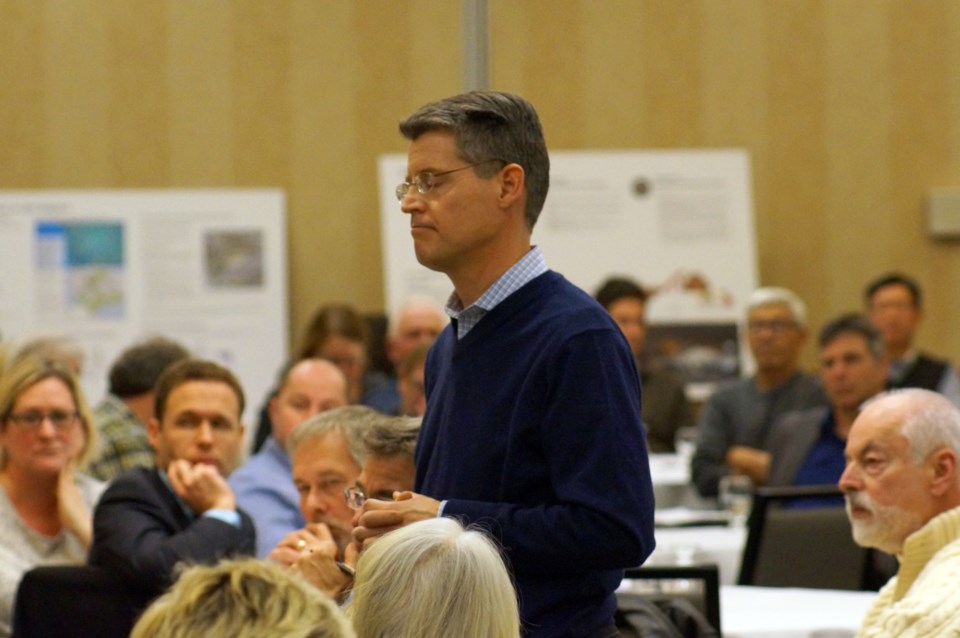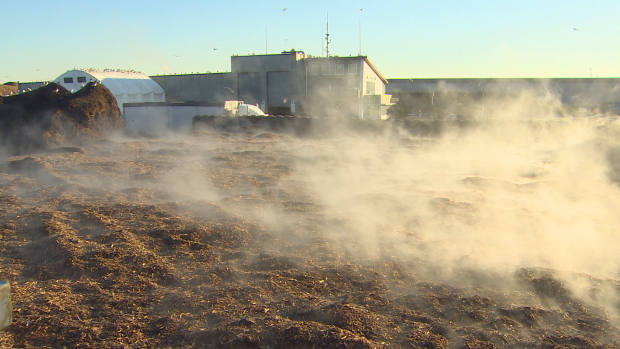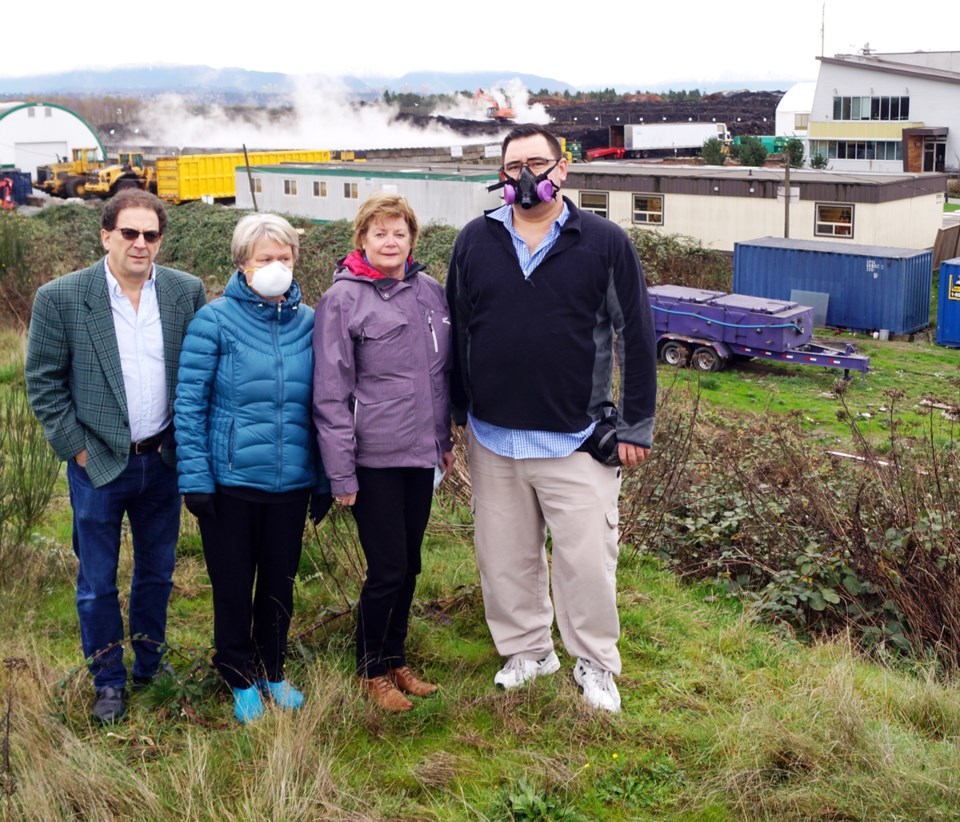Beleaguered composter Harvest Power will be shutting down permanently due to regulatory uncertainties, according to a company spokesperson.
Stephen Bruyneel told the Richmond News the company was not willing to make multi-million dollar facility improvements amidst uncertainty surrounding its air quality permit, issued by Metro Vancouver.
The pending closure is being celebrated amongst Richmond residents dedicated to ending years of nuisance odours emanating from the open-air organic waste-to-energy facility, near Westminster Highway and No. 8 Road.
“This is great news if it all works out!” wrote Arnold Shuchat, a local real estate agent, on the Facebook page Stop the Stink in Richmond, whose members have long championed for changes, or an end, to Harvest Power’s operation, which initially received significant taxpayer subsidies.
Two dozen residents are in the process of appealing the company’s air quality permit to the Environmental Appeal Board and a three-week hearing is scheduled for next month.
But Massachusetts-based Harvest Power announced Thursday, in writing to the board, that it would “be participating to a limited extent” only, in the upcoming hearing.
The Act grants Metro Vancouver regional government the ability to regulate air quality and issue air quality permits. In September 2016, Metro Vancouver issued a four-year permit (now being appealed) to Harvest Power on the condition it must take measures to mitigate odours and is bound by new enforcement guidelines.

One odour-mitigation measure was to develop a new, and costly, Covered Aerated Static Pile (CASP) Composting System by April, 2019.
Bruyneel said Harvest Power recently decided it wasn’t willing to take that step.
“It’s a business decision with all the regulatory uncertainties,” he said.
Another bone of contention from Harvest Power was a new “sniff test” whereby Metro Vancouver employees would determine if the company’s compost was wafting across Richmond neighbourhoods. The company claimed it was unscientific however Metro Vancouver continued to tighten the area around the facility whereby odours were permitted without penalties.
“We need to make significant multi-million dollar investments and we can’t figure out the timing of getting the permits …and we can’t justify those expenses,” Bruyneel added, claiming the decision is “final” and close to 50 employees have been notified of the wind down.
“We will continue to operate under the permit.
“At some point we’ll need to stop taking organic waste because that’s part of the permit with the CASP (come April),” said Bruyneel.
“We’ve enjoyed working with all our customers and municipal partners. We wish them all the best in their sustainability goals. And obviously we wish our employees the best as they transition,” he added.
Shuchat said the public “can derive some satisfaction” from Harvest Power’s closure thanks in part to the appellants, but still, “I think everyone wants to do good by the environment.”
He said an upcoming election should be a time for residents to judge municipal politicians on their handling of the saga and also ask candidates how organics recycling can improve in the region.
In 2012, Harvest Power reportedly took in 27,000 tonnes of organic waste. But by 2016, it was taking in 240,000 tonnes as Metro Vancouver rolled out its organic waste ban in garbage.

Don Bradley, spokesperson for Metro Vancouver, said, “We don’t anticipate any capacity issues given the amount of other composting facilities in the region.”
For example, he said Surrey’s new, closed biofuel facility has a capacity of 115,000 tonnes and only half that is used by the City of Surrey. The City of Richmond has already diverted its organics to Delta’s Enviro Smart facility, which is now experiencing odour complaints similar to Harvest Power.
The U.S. company entered the organic waste fray in Metro Vancouver in 2009, when it purchased Fraser Richmond Soil and Fibre, which had largely handled landscaping waste since 1993. At the time, Harvest Power stated the takeover was an opportunity to demonstrate the company’s “industry-leading technology.”
The following year, Harvest Power received $4 million from the federal Clean Energy Fund to help bankroll its high solids anaerobic digestion facility (the “energy garden”), touted as the company’s “best-in-class” technology to turn biogas into electricity. The federal grant was later complemented by a$2 million investment from Metro Vancouver for improvements at the site, which now operates under the name Harvest Fraser Richmond Organics Ltd. Fourteen months later, in February 2012, it dipped back into the taxpayers’ well, receiving a $1.5 million grant from the provincial BC Bioenergy Network to further the energy garden project.
“This energy garden will not only create B.C. jobs, it will provide a blueprint for other waste-to-energy projects in B.C., Canada and the U.S.,” said B.C. Minister of Energy and Mines Rich Coleman, at the time.



